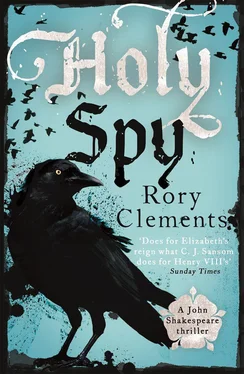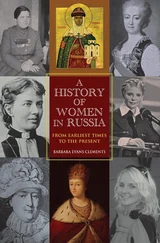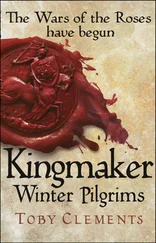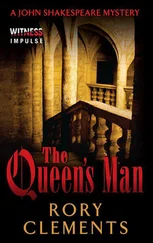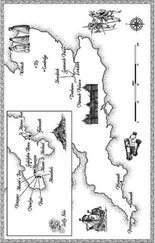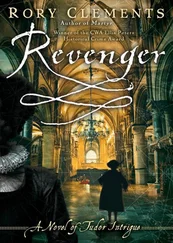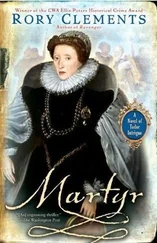Rory Clements - Holy Spy
Здесь есть возможность читать онлайн «Rory Clements - Holy Spy» весь текст электронной книги совершенно бесплатно (целиком полную версию без сокращений). В некоторых случаях можно слушать аудио, скачать через торрент в формате fb2 и присутствует краткое содержание. Год выпуска: 2015, Издательство: Hodder & Stoughton, Жанр: Исторический детектив, на английском языке. Описание произведения, (предисловие) а так же отзывы посетителей доступны на портале библиотеки ЛибКат.
- Название:Holy Spy
- Автор:
- Издательство:Hodder & Stoughton
- Жанр:
- Год:2015
- ISBN:нет данных
- Рейтинг книги:3 / 5. Голосов: 1
-
Избранное:Добавить в избранное
- Отзывы:
-
Ваша оценка:
- 60
- 1
- 2
- 3
- 4
- 5
Holy Spy: краткое содержание, описание и аннотация
Предлагаем к чтению аннотацию, описание, краткое содержание или предисловие (зависит от того, что написал сам автор книги «Holy Spy»). Если вы не нашли необходимую информацию о книге — напишите в комментариях, мы постараемся отыскать её.
Holy Spy — читать онлайн бесплатно полную книгу (весь текст) целиком
Ниже представлен текст книги, разбитый по страницам. Система сохранения места последней прочитанной страницы, позволяет с удобством читать онлайн бесплатно книгу «Holy Spy», без необходимости каждый раз заново искать на чём Вы остановились. Поставьте закладку, и сможете в любой момент перейти на страницу, на которой закончили чтение.
Интервал:
Закладка:
He urged his horse on, ruthlessly pushing aside men and women. In his urgency and frustration he lashed at shoulders and backs with his crop. Some men tried to pull him from the saddle, but Boltfoot, just behind his master, held them at bay with the muzzle of his caliver.
Being on horseback, they could see above the heads of the throng. In the distance the crossbar of the scaffold was visible. It was so close, yet still out of reach. From a hundred yards away, they heard a loud gasp from the front rows of the enormous crowd.
Shakespeare’s horse was bucking and jinking. It was going to kick someone to death if he carried on. He slid from the saddle and handed the reins to Boltfoot.
‘I’ll go ahead on foot. Tether them, then follow.’
Though he was tall, he could no longer see above the mass of people. Everyone wanted a better look and they all surged forward. Using elbows and hands he propelled himself through gap after gap. Each gasp of the crowd, each shout sounded like a death knell.
‘You, get back.’ A thickset man whom he had jostled grabbed his arm and punched the side of his face with venom. Shakespeare took the blow and wrenched his arm free and thrust into a breach between two old women, moving ever onwards, a yard at a time, towards the platform of death.
The two black-hooded figures, both slender and of a size, twisted and turned in the early morning air. Their arms were bound behind their backs, their legs bound at the ankle. The hemp ropes suspending them creaked against the rough wood of the gallows. Was the wind moving them? Were they struggling? Were they alive or dead?
Shakespeare leapt up onto the scaffold. Justice Young stood in his way, his sword drawn and held two-handed, ready to deliver a thrust into the belly or throat of any man who tried to get past. Shakespeare threw the hastily written document at him. ‘There’s a stay!’ Then he brushed him aside as if swatting a fly.
His sword was already drawn. Two guards pounced forward with their halberds to bar his way, but he was too quick. With a mighty slash, he hacked at the rope above the first figure’s head. But the cut did not sever the hemp. The fibres were frayed but held the body still. He hacked again. And again. Arms tried to grapple him, but with the strength of a madman he fought them off, drew his dagger and sawed through the remaining fibres. As the figure fell, he tried to break its fall, but stumbled. He watched helpless as the knees cracked into the wood of the scaffold, then the body tumbled forward. No sound came from the lifeless form. He tore at the tight noose, to loosen it. He did not have time to see whether there was any sign of life.
Justice Young was holding his arms. Shakespeare tried to tear himself free. ‘God damn you, Young, read the order staying this execution. Help me . . .’
Before he could say more, the butt of a petronel smacked into his chest like a smithy’s hammer on the anvil and he was thrown backwards, falling awkwardly against the sharp edge of the scaffold, and then crashing down into the street, head first. Into oblivion.
A buzzard circled high above the verdant countryside. Wafted on the warm air, it rose to ever-increasing heights, its sharp eyes questing for prey on the greensward below. It was looking for mice and shrews and small birds. Had it had but eyes to see, it would have spotted prey of a different nature.
But the raptor had no interest in the carriage of the Queen of Scots that trundled from her prison at Chartley on a three-mile journey towards the deer park of Sir Edward Aston at Tixall.
Like the mouse or shrew, Mary was unaware of the encircling forces that sought her death. She was in holiday mood. Her keeper, Sir Amyas Paulet, had allowed her this rare excursion to join the hunt. She was, too, in remarkably good health, the pain in her legs all but gone and her stoutness reduced by increasing amounts of exercise.
She gazed from the carriage window. In the distance she could see a new building which she was sure must be Tixall Hall, but one of her secretaries put her right. ‘It is the new gatehouse, Your Majesty. Note the turrets and cupolas.’
A gatehouse as big as a palace. Her spirits rose. After months of confinement at Chartley, she was at last to enjoy the glittering life to which she was born, even if only for a day. Then she looked to the side. At the edge of the woods, she saw a band of horsemen. At first she thought it must be the Tixall hunt. But they were not attired for the hunt; they were men-at-arms.
She drew a sharp breath and her whole body tensed. Was it true? Was this was the troop of young men come to free her, the one promised by loyal Mr Babington? She tried to count their strength. There were many of them – surely enough to outgun her guards. It was really happening.
There had been so many disappointments in the eighteen years of her captivity, but now at last she could dare believe she was truly to be brought to freedom. More than that; the throne of England was now within her grasp . . . God willing. She put her hands together and intoned a prayer.
The carriage stopped. The horsemen were approaching – fifty strong, in military attire, the horses caparisoned. All were armed with pistols and calivers. She searched for Babington’s handsome face; it was not there. Mary Stuart’s heart pounded, like the mouse the moment it feels the hawk’s talons on its back. The colour drained from her already pallid face.
She opened the carriage door and stepped out. Nearby, just out of earshot, she saw that the captain of the troop of men was conversing with her keeper, the Puritan Sir Amyas Paulet. She began to walk towards them. The captain slid from his horse, bowed low to the Queen of Scots.
‘My lady,’ he began. Not the Your Majesty that her own people would use as a mark of respect. ‘My lady, a plot has been uncovered to kill the Queen. I am under orders to take you into custody and await instructions.’
‘A conspiracy, Captain? What has this to do with me?’
‘I simply obey. You will come with me now.’
Whether she was overcome by a slight fainting fit or whether it was an act of defiance was unclear, but she instantly collapsed to the ground and sat on the grass. ‘I will die here. Shoot me if you will.’ And then she put her hands together and began to pray.
Did they look like farmworkers? Could five young men, gently born and reared, truly transform themselves into peasants with a change of clothes, rough cutting of hair and the application of walnut juice and dirt to weather their faces?
Anthony Babington had his doubts, but he had no other notion of what to do. His companions – John Charnock, Robert Gage, the Irishman Robert Barnwell and Henry Dunn
– looked to him for leadership and so this was his decision. Somehow they would make their way out of this wood, find horses and go their separate ways to the coast where they would try to secure passage to France.
After days without food or shelter, they were in a hayloft beneath the roof of a barn on the estate of the moated manor of Uxendon Hall, home of the Bellamy family. They would find assistance there, for none in England was more true to the old faith than the Bellamys. Henry Dunn had already gone to sound out the family. Babington was certain he would return soon with food and the promise of horses.
He heard a sound outside and signalled with his hand for silence. Peering down to the gaping doorway of the barn, he sighed with relief. It was Henry, and he had two of the Bellamys with him, Bartholomew and Jerome, both of them good Catholics and occasional members of the Pope’s White Sons. They were carrying a basket, covered with white linen; so there would be food and ale.
Hope had been in short supply these past few days, sleeping in the bracken, listening for sounds and then hurriedly moving on when they heard the barking of dogs as the searchers mounted their hue and cry. But there was hope now. God and this godly family would save them.
Читать дальшеИнтервал:
Закладка:
Похожие книги на «Holy Spy»
Представляем Вашему вниманию похожие книги на «Holy Spy» списком для выбора. Мы отобрали схожую по названию и смыслу литературу в надежде предоставить читателям больше вариантов отыскать новые, интересные, ещё непрочитанные произведения.
Обсуждение, отзывы о книге «Holy Spy» и просто собственные мнения читателей. Оставьте ваши комментарии, напишите, что Вы думаете о произведении, его смысле или главных героях. Укажите что конкретно понравилось, а что нет, и почему Вы так считаете.
